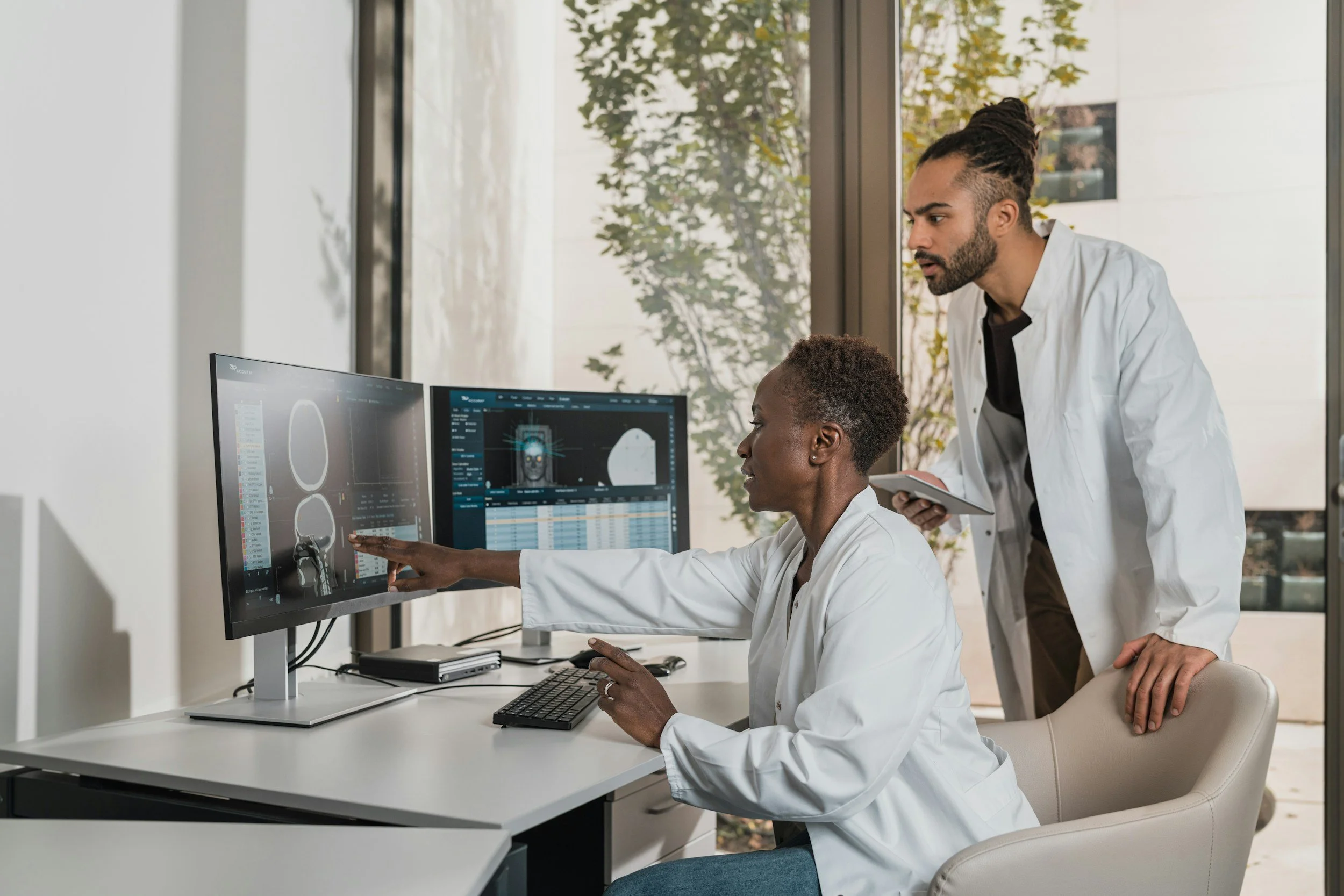Imperatives & Insights: Navigating the FDA's New Regulatory Landscape for SaMD and AI/ML in MedTech
The FDA's regulatory landscape for Software as a Medical Device (SaMD) and AI/ML is rapidly evolving. Get key takeaways on the top 3 questions driving FDA review: clarifying device function, establishing robust AI/ML evidence, and ensuring real-world safety.
Early FDA Engagement: The Single Biggest Lever to De-Risk Your MedTech Roadmap
For MedTech executives, the path to market is fraught with risk. The single most powerful strategy to de-risk your roadmap and accelerate approvals is proactive, early engagement with the FDA. Learn why shifting from viewing the FDA as a roadblock to seeing them as a strategic partner is the critical differentiator that signals maturity and strengthens investor confidence.
2025 Retrospective: Strategic Regulatory Milestone
For global MedTech companies, 2025 was a pivotal year, marked by the need for meticulous regulatory planning. At MedTech Impact Partners (MIP), we successfully helped our clients de-risk their innovation portfolios, providing the executive-level peer review necessary to navigate evolving FDA guidance and complex therapeutic pathways. From achieving Substantial Equivalence for advanced cardiovascular software to accelerating translational velocity for university-led AI technologies, our focus remained on creating enterprise value through optimized pre-submissions and significant clinical trial cost-avoidance. Read our full review of the strategic milestones we achieved with our partners across 4 continents and 12 clinical specialties.
The Dual Brain Drain: How Recent Staffing Shifts at CDRH Threaten Medical Device Innovation
Recent staff reductions at CDRH are creating a 'dual brain drain,' losing both experienced managers and new reviewers. Kwame Ulmer explains how this turnover risks policy consistency and delays time-to-market for medical devices.
Top 10 MedTech Conferences to Watch in 2026
The MedTech industry is shifting fast—powered by AI breakthroughs, rising investor momentum, and evolving regulatory demands. To stay ahead, leaders need to be in the rooms where strategy, science, and commercialization intersect. Here are ten conferences that consistently deliver high-value connections and insights for MedTech founders, investors, and operators heading into 2026.
Navigating the MedTech Innovation Landscape: 7 Key Characteristics of a Successful Incubator or Accelerator
At MedTech Impact Partners, we know the right accelerator does more than fund your startup—it shapes your path to market.
The best programs offer capital, MedTech-specific guidance, strong partnerships, and a proven record of success. Leaders like MedTech Innovator, MedTech Color, and Y Combinator show how these elements combine to turn innovation into impact.
We help founders navigate these opportunities—so your breakthrough today becomes tomorrow’s medical standard.
Navigating Regulatory Strategy: A Proactive Approach for MedTech During the Extended Government Shutdown
The U.S. government shutdown has progressed past the four-week mark, shifting the MedTech regulatory environment from a short-term inconvenience to a material strategic challenge. This is not simply a temporary slowdown; it represents a definite drawdown on regulatory resources.
User fee funds supporting active submissions face depletion, the acceptance of new submissions is suspended, and the accumulating inspection backlog presents a variable that substantially impacts commercial launch timelines, even following regulatory clearance. MedTech Impact Partners provides this advisory detailing the three key challenges to your project timeline and the essential action required now to ensure your submission is prepared to outperform the post-reopening volume.
The Translational Research Pathway to Maximize University IP Value
Discover how to overcome the "valley of death" in university MedTech commercialization. This post reveals strategies to accelerate innovation, maximize IP value, and achieve faster market entry through proactive regulatory and clinical planning.
Navigating the Government Shutdown: An Update for MedTech Impact Partners
The government shutdown introduces immediate shifts in the FDA's regulatory cadence. See our concise guide on essential personnel, project timeline adjustments, and recommended communication protocols to keep your critical MedTech projects moving.
De-Risking Innovation: A MedTech Impact Partners & Boulder Clinical Science Case Study
Learn how a strategic partnership enabled an ARPA-H funded innovator to overcome critical market entry challenges, transforming their regulatory environment into a competitive advantage.
From Confusion to Clarity: A Startup's Roadmap to CE Marking in the EU
Demystify EU IVDR compliance for your health tech startup. Learn how MedTech Impact Partners provides a clear roadmap to CE Marking, accelerating market access and minimizing risk for innovative diagnostic tools (SaaMDs). Essential insights for healthcare executives seeking European market expansion
Ensuring Substantial Equivalence: Cybersecurity Compliance for MedTech Organizations
The FDA recently finalized its long-awaited cybersecurity guidance for medical devices, consolidating several previous documents into a more detailed and unified framework. While much of the content remains consistent with prior expectations, this version includes notable clarifications and new emphasis on several points that could significantly impact device submissions — particularly 510(k)s.
Beyond the Blueprint: How to Get the Most Out of an FDA Informational Meeting
Master FDA Informational Meetings for MedTech. Learn how to strategically present AI-driven devices, clarify misconceptions, and streamline your path to market with expert regulatory guidance
Navigating FDA Changes in 2025: Key Insights for MedTech Companies
MedTech Impact Partners has been closely monitoring the evolving FDA landscape through conversations with former and current FDA personnel, investors, and Medtech companies. These insights, combined with those shared in a recent webinar hosted by MedTech Color featuring Steve Silverman and Kwame Ulmer, highlight the significant changes at the FDA under the current administration and their implications for stakeholders. The webinar session, summarized in the accompanying presentation, provided valuable insights into navigating the evolving regulatory landscape, crucial for ensuring premarket success, regulatory compliance, and product quality.
Is Your Medtech Company Leaving FDA Success to Chance?
For leaders driving success at large medtech device and manufacturing companies, navigating FDA regulations can feel like a constant high-stakes game. Are you confident you're making the smartest moves to ensure smooth approvals and long-term market success?
Many companies miss these three critical areas that can make all the difference…
Navigating FDA Review Times in a Shifting Political Landscape: What MedTech Companies and Investors Need to Know
The regulatory landscape for medical devices is a critical factor for companies navigating the path to market. Recently, there has been significant discussion around FDA review times, particularly in light of recent staffing reductions and broader government efficiency initiatives. After analyzing various factors and consulting with industry leaders, we believe there is reason for cautious optimism.
Elevate Your MedTech Network: Top Conferences to Attend in 2025
The MedTech landscape is constantly evolving. Staying ahead of the curve requires continuous learning, networking, and exposure to the latest innovations. To help you maximize your professional development, MedTech Impact Partners has curated a list of top industry conferences to attend in 2025. These events offer valuable opportunities to connect with industry leaders, explore cutting-edge technologies, and gain valuable insights into the future of MedTech.
Regulatory Impact Brief: Impact of President Trump's DEI Order on FDA Submissions and Rules
Explore how the recent federal mandate limiting DEI initiatives impacts FDA medical device regulations. Learn about the implications for clinical trials, rule changes, and your organization's compliance.
Implications of the 2024 US Election: Preparing for Prospective Changes to the Regulatory Landscape
The recent US presidential election has significant implications for the medical device industry. By proactively addressing these areas, MedTech companies can navigate the evolving regulatory landscape and ensure the success of their products.
Conquer Ghana's Medical Device Market: Leveraging the USFDA for Faster Approvals
Ghana's medical technology (medtech) industry is booming! This presents a golden opportunity for companies worldwide, but navigating the regulatory landscape can feel daunting.




















